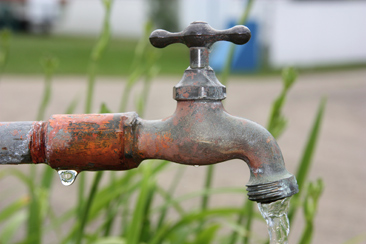By Tania Williams
What is climate change and how does it affect me?
This is the question most climate scientists want each and every person to think about. On a daily basis I personally think about what could possibly change and how these changes affect me, but what about other people? What about those who have no interest in climate change? What about those who do not have any knowledge about climate change? What about the public? In recent months we’ve seen the implementation of strict water restrictions all over Western Cape. Low dam levels (<25%) and the panic of a possible shutdown of water supply, we are possibly in the midst of the worst drought Western Cape had ever face.
This blog was inspired by a gentleman who said to me “we’re all water savvy now, but if the rain falls we’ll all be taking 20 minute showers and no one will be reusing water”. Well to those who think this way, I think it’s time for a wake-up call. We need to make water-wise living a part of our normal routines and not a temporary change. It is about a lifestyle change, it is about adapting to the current and future changes to allow our city to survive; in conclusion it’s about resilience. The type of water restrictions we have now will soon become part of our annual routines. This is a result of climate change and the impacts it has on rainfall patterns, rainfall onset and total amount of rainfall over a region.
Global climate change is relayed to a regional scale through changes in the hydrological cycle, such as changing rainfall patterns, intensity and extremes (Bates et al., 2008). These changes could lead to droughts over particular regions. This makes water management in a region particularly difficult as there is less water available, leading to negative impacts on society (Shulze et al., 2001). The pressure for alternate water sources and improved water management is further strained by the growing population in the region. Climate projections have shown that Southern Africa is becoming generally drier (e.g. Engelbrecht et al., 2011). This shows that the water shortage is not temporary; the water stress will be a regular occurrence and may even worsen over time. The only way to adapt and to ensure that we, the people living in this region, become more mindful on the water we use.
But how do we educate and inform the public of this information? Well over the past few days I’ve taken it upon myself to assess people’s reactions to the low dam levels. These are a few things I heard from people around me:
“It will rain, it always does”
“It’s flooding in Gauteng so they can just build a pipeline to Cape Town.”
“It’s too much effort to reuse water.”
“Informal settlements need to be monitored, they waste the most water.”
“This is not my problem.”
“Why should I save water while other people fill pools and wash cars?”
“This is most probably a money making scheme.”
“This is the government’s responsibility.”
“Maybe the rich people should fix this.”
“I pay for the water I use, so nobody should tell me what to do.”
I’ve also spent some time explaining to some people about some facts around climate change; many of these people respond by gasping and/or saying they will be water wise. The problem with this is that many of them do not follow through; they only feel responsible in the moments after the conversation. The mindset has always been to shift blame to anyone but ourselves, which is exactly what is happening now. In many instances we are aware of the risks but the panic makes it impossible to act rationally. This is where scientists, in collaboration with the government, should step in and take it upon themselves to inform the public. Personally, I have been trying my best to be water wise but I have to admit, if I did not know the things I do, then maybe I would not make it a priority.
This is not the time to shift blame, it is the time for us to stand together and work to inform the people around us. It is a time to present the information we have and to make everyone aware that this is not a once-off event. It is the time to make sure that living water wise becomes a part of everyone’s daily routine. Panic will throw the city into a chaos, so maybe instead of panicking we should be informing. This is the time to show people that climate change is real, and that this is the consequence.
References
Engelbrecht, F.A., Landman, W.A., Engelbrecht, C.J., Landman, S., Bopape, M.M., Roux, B., McGregor, J.L. and Thatcher, M., 2011. Multi-scale climate modelling over Southern Africa using a variable-resolution global model. Water SA, 37(5), pp.647-658.
Schulze, R., Meigh, J. and Horan, M., 2001. Present and potential future vulnerability of eastern and southern Africa’s hydrology and water resources: START Regional Syntheses. South African Journal of Science, 97(3-4), pp.150-160.
Bates, Bryson; Kundzewicz, Zbigniew W.; Wu, Shaohong & Palutikof, Jean. Climate Change and Water: Technical Paper VI, book, 2008; [Geneva, Switzerland].
